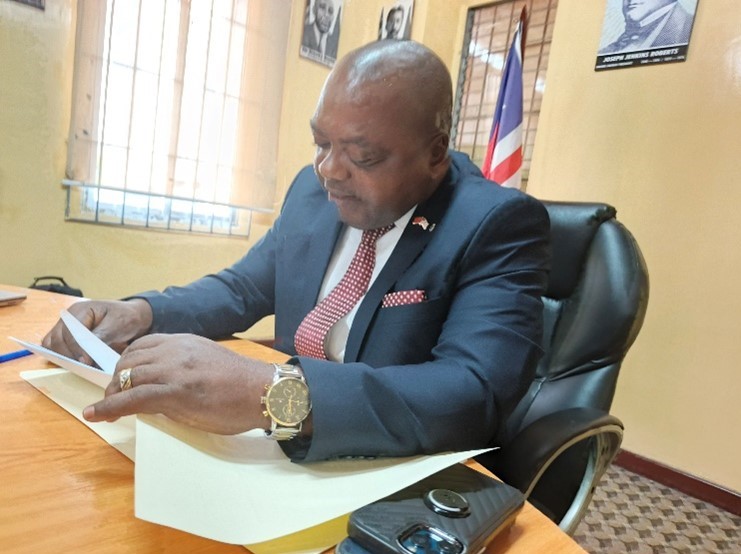The Liberian National Bar Association (LNBA) has sharply criticized a recent Supreme Court ruling regarding a leadership dispute within the House of Representatives, arguing that the decision sets a “dangerous precedent” and constitutes judicial overreach into political matters. The LNBA contends that the Court’s April 23rd ruling, which affirmed Speaker J. Fonati Koffa’s leadership and declared legislative sessions held without him unconstitutional, misinterprets legislative procedures and threatens the separation of powers. The Bar’s primary concern centers on the Court’s use of a Bill of Information, a mechanism typically used to clarify existing judgments, to effectively reopen and re-rule on a matter previously decided in December 2024 concerning the interpretation of Articles 33 and 49 of the Constitution. This, the LNBA argues, violates the Political Question Doctrine, which limits judicial intervention in disputes belonging to the legislative or executive branches.
The LNBA argues that the Supreme Court overstepped its constitutional boundaries by intervening in the internal affairs of the House of Representatives. They contend that matters of leadership, procedure, and internal functioning fall squarely within the Legislature’s domain. The Court’s declaration that any session without the Speaker is illegal, even with a quorum present, is deemed a misinterpretation of legislative practice and potentially disruptive to the legislative process. The LNBA emphasizes that the Constitution provides flexibility for legislative operations, allowing business to proceed with a simple majority present, and dictates specific procedures for the Speaker’s election and removal. The association argues that the Speaker’s mere presence on Capitol grounds is insufficient; he must be actively participating in the session for it to be considered valid.
The LNBA cautions that the Supreme Court ruling, if left unchallenged, could have far-reaching and damaging consequences for Liberia’s governance. The Bar argues that the 2025 National Budget, passed during sessions without Speaker Koffa, could be deemed illegal, potentially nullifying all subsequent government expenditures. This, the LNBA warns, could lead to the paralysis of government operations and a “criminal subversion of the government.” The LNBA calls for the Court to swiftly reverse its decision to avert a constitutional crisis and safeguard the integrity of the nation’s democratic institutions. The organization underscores the urgency of resolving this impasse to maintain stability and uphold the rule of law.
Furthermore, the LNBA criticizes the Supreme Court’s interpretation of the Speaker’s role. They argue that the Court’s interpretation that any session held without the Speaker is invalid, regardless of a quorum being present, is a misreading of legislative practice and constitutional provisions. The LNBA highlights that Article 33 of the Constitution allows legislative business to be conducted with a simple majority and Article 49 governs the election and removal of the Speaker. They argue that the Speaker’s physical presence on Capitol Hill doesn’t automatically validate a session; rather, the Speaker must be actively participating in the proceedings for it to be constitutional.
To address the ongoing impasse, the LNBA proposes the establishment of an Independent Mediation Committee comprising former Chief Justices, LNBA leaders, members of the Interreligious Council, and civil society representatives. The LNBA stresses the importance of constructive dialogue and mediation between the three branches of government to resolve the conflict and safeguard Liberia’s democratic framework. They believe that this neutral body can facilitate productive conversations and help the parties achieve a mutually agreeable solution, preventing further escalation of the political tension.
While expressing strong disapproval of the Supreme Court’s decision, the LNBA refrains from advocating for institutional resistance. Instead, they emphasize their commitment to upholding the rule of law and protecting Liberia’s democratic institutions. They reiterate their belief in the importance of maintaining a balance of power between the branches of government and preventing the judiciary from becoming a tool for political manipulation. The LNBA calls for all involved parties to come to the negotiating table in good faith and work towards a resolution that respects the Constitution and upholds democratic principles. The association’s position underscores the complex and delicate balance of power within Liberia’s political system and highlights the importance of finding common ground to navigate these constitutional challenges.


